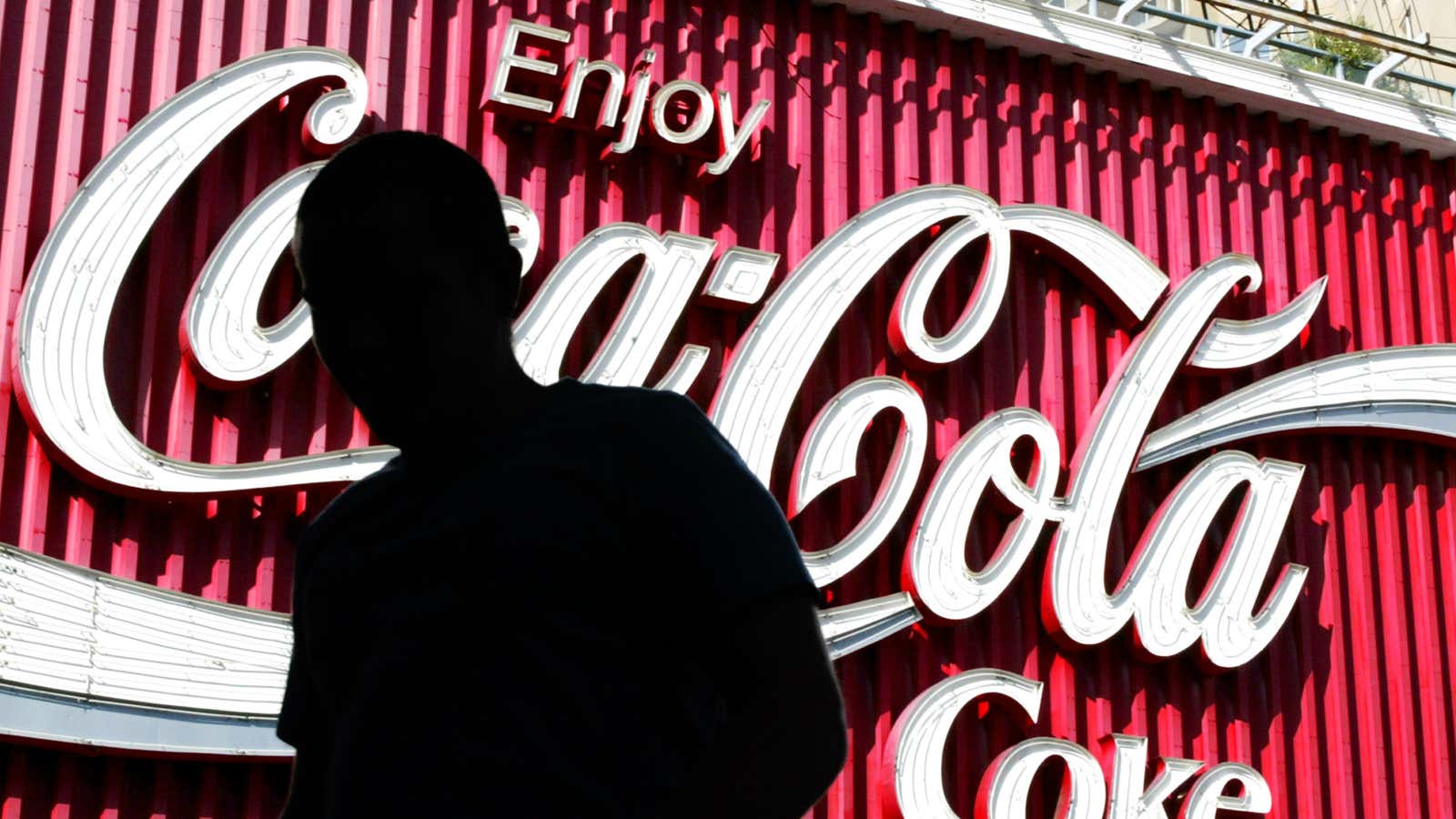The world’s largest maker of soda wants to pay someone $1 million to solve one of its biggest problems.
The Coca-Cola Company last week unveiled its open challenge for scientists to do what no soda company has been able to accomplish: find a natural, safe, low- or no-calorie compound that has the same sensation as sugar when mixed into drinks and foods. It can’t contain or be derived from stevia or monk fruit, or be from any protected species or substance. The task is herculean, in fact one of the biggest problems facing the $4.8 trillion packaged food industry. And if someone succeeds, the prize money is $1 million.
“I think it’s a little cheap,” says Ross Colbert a beverage analyst at Rabobank. “I think for whoever can find it, it would be worth multiple of that.”
Of course, that a global company worth billions has resorted to a public contest to find a sugar substitute for its flagship products speaks volumes about the state of soft drinks in America. People today drink about 19% less soda than they did 15 years ago, partly based on concerns over health.
“It tells you to what degree the pressure is to find a suitable substitute or replacement,” says Colbert. “This is like the quest for the Holy Grail because it has created such a headwind for carbonated soft drinks.”
Indeed, soda makers grappling with the decline have become increasingly desperate to find a substitute for their most controversial ingredient. Sales trends show consumers concerned about sugar’s link to chronic maladies—including heart disease and diabetes—are shifting to healthier beverages such as bottled waters and herbal teas. They are also voting in favor of soda taxes in cities across America.
Soda companies have tried different alternatives to sugar—particularly in their diet-soda products—but haven’t found any one that perfectly replicates the real thing. Pepsi tried using saccharine in Diet Pepsi, but then took it out in 1984 for a “better-tasting” artificial sweetener, aspartame. But as consumers complained about lack of natural ingredients in their foods, Pepsi decided to ditch aspartame for sucralose. That changed the taste of the drink and in 2016 Pepsi reversed course—and began using aspartame again.
And then there’s the sugar substitute extracted from the leaves of stevia plants. It works for some drinks, especially lemon-lime soft drinks. But when applied to cola, it leaves a lingering licorice aftertaste.
